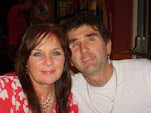FRIDAY 18 NOVEMBER - LGRE DIARY NOTES
A much cooler day than of late with SSE winds pegging temperatures back. A dry day though, and fairly bright......
CALDECOTTE LAKES (NORTH BUCKS)
The juvenile GREAT NORTHERN DIVER was still showing very well today, frequenting the extreme NE corner of Caldecotte North Lake. It was diving almost continuously and also ventured out on to the main lake. As both Simon and Ben have already expressed, the bird is particularly photogenic, and swims within 30 feet of the boardwalk.
DIRECTIONS: From the A5, take the H10 Bletcham Way eastwards. Just after the Brewer's Fayre pub, take first right on to Monellan Grove. Within a few yards, turn left on to Caldecotte Lane and then left again on to Wadesmill Lane. This road takes you under the Walton Park underpass and after about 150 yards turn left in to Chase Avenue. Continue on until Redcote Manor cul-de-sac appears on your left and park sensibly as you come across the bay.
This was the first time I had ever visited this particular part of the lake and I was impressed by the number of waterbirds present - 6 Great Crested Grebes, 5 Mute Swans (2 first-winters), 38 Mallard, 5 Gadwall, 13 Tufted Duck, 28 Coot, 1 Grey Heron and a COMMON KINGFISHER.....
Allan Stewart and I then checked Caldecotte South Lake where a further 8 Great Crested Grebe, 11 Mute Swans (including family party of 6) and 83 Coot were noted.
LINFORD NATURE RESERVE (NORTH BUCKS)
Following up on a report, Allan and I visited the Woodland Hide at Linford Reserve. In the 45 minutes that we were present, a procession of Great and Blue Tits visited the two feeders consistently. There were also 3 black-capped tits visiting throughout, including two pale cutting-edged MARSH TITS and what appeared to be a WILLOW TIT. All three birds were typically vocal, the apparent Willow Tit making the nasal call most frequently associated with that species. It was also very bull-necked in appearance, with the black extending slightly further back on to the hindneck, the white cheeks contrasting with the warmth of the head and the sides and flanks very richly coloured. The black bib was more extensive and patchy and the crown colour more drab and plain. The wing panel however was very ill-defined and difficult to see.
The Woodland Hide also yielded 4 Bullfinches, 30 Fieldfares, 28 Redwings and 2 Song Thrushes, whilst Black Horse Lake held 9 Great Crested Grebes and Linford Lake 14 Little Grebe (all in one flock), 54 Mute Swans and 62 Common Teal on the pool by the Swans Way.
STOKE GOLDINGTON, GAYHURST MANOR AND LITTLE LINFORD AREA (NORTH BUCKS)
We had a good look round for Tree Sparrows but failed to locate any and likewise failed in our quest to locate the Great White Egret......
However, driving down the track towards Gayhurst Manor, we were surprised to find a COMMON RAVEN 'guarding' the road and gathering horse hair in its beak. Surely it was not nesting already. Anyway, as we approached, it cronked a couple of times and then flew off in the direction of this spring's nest. The same pony fields yielded 40 Meadow Pipits and 15 Pied Wagtails.
Little Linford Wood was devoid of any maize crop and consequently any Tree Sparrows or farmland birds but 5 Fieldfare were noted.
At SP 850 440, the large lake to the west of the M1 held 42 Mute Swans.
WILSTONE RESERVOIR, TRING (HERTS)
Nothing new had arrived - in fact the adult Eurasian White-front had departed.
The juvenile DARK-BELLIED BRENT was still in the usual field adjacent to Rushy Meadow, the family party of 4 BEWICK'S SWANS in the isolated pool in the NW corner by the Black Poplars and 3 Little Grebes, 65 Greylag Geese, 2 drake PINTAIL, the female RED-CRESTED POCHARD and 5 COMMON GOLDENEYE on the main reservoir.
BEECH FARM FIELDS, FORMER HATFIELD AERODROME SITE (HERTS)
A splendid performance by up to 4 SHORT-EARED OWLS at dusk, including 3 typically pale individuals and a single darker bird. Also no less than 6,500 Jackdaws flew noisily in to roost - this being one of the largest roosts of this species in Britain
Friday, 18 November 2011
Subscribe to:
Post Comments (Atom)

No comments:
Post a Comment